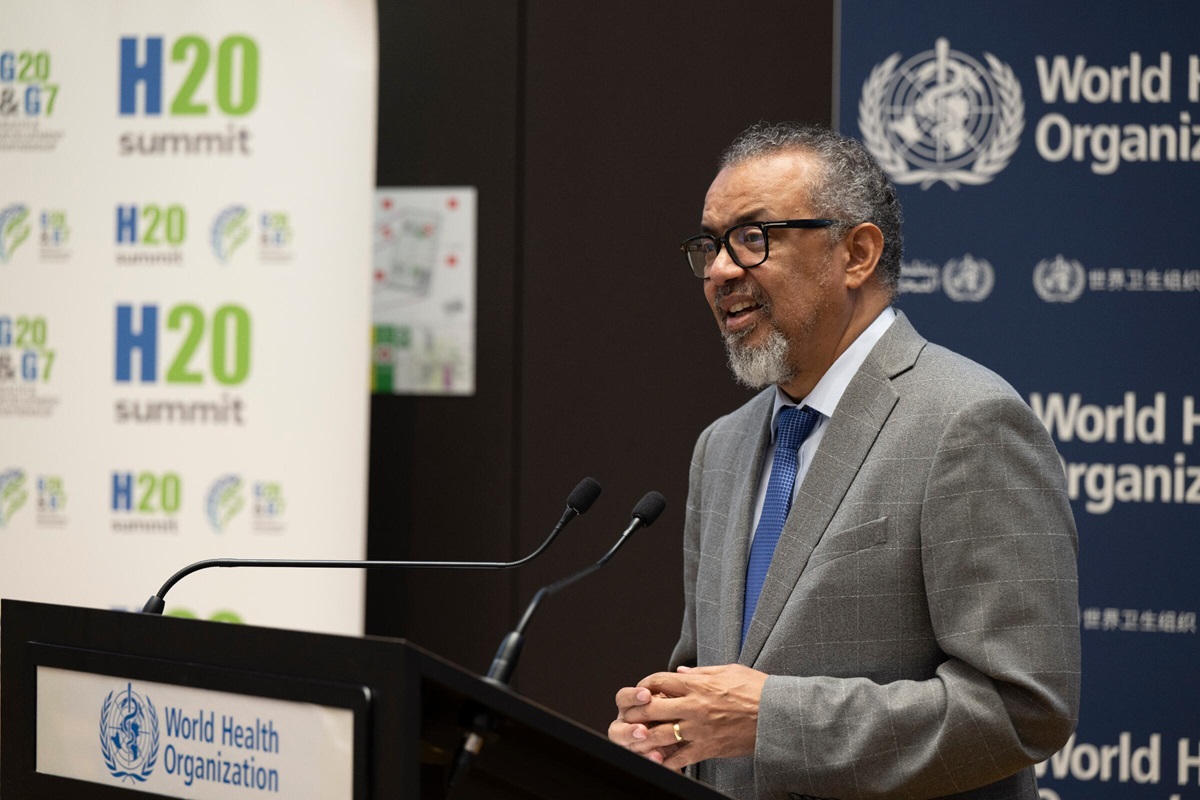
Re-building trust and a new financing framework: H20 Summit to set the stage for G20 health priorities
How did your country report this? Share your view in the comments.
Diverging Reports Breakdown
Re-building trust and a new financing framework: H20 Summit to set the stage for G20 health priorities
Leading G20 policy-makers, global health experts and representatives from both the private and public sectors are meeting in Geneva from 19–20 June. The Summit comes at a critical moment for global health amid geopolitical shifts, economic uncertainty, and shock funding cuts to development aid. It will focus on the future of global health and finance, and explore how to build resilience, trust, and sustainability into health systems. Outcomes from the two-day deliberations will inform both the upcoming UN General Assembly’s fourth high-level meeting on noncommunicable diseases (NCDs) in September and the G20 health ministers and leaders’ summit in South Africa this November. The first NCDs and Mental Health Global Legislators Report offers a toolkit for parliamentarians to advance preventative global health goals. The health taxonomy report provides a first framework for a health investment tool aimed at fostering a shared understanding and common language between governments, companies, and investors. The H20 Summit is unique in offering an inclusive and collaborative platform where the traditional global health community can intersect with decision-makers from politics and finance.
The Summit comes at a critical moment for global health amid geopolitical shifts, economic uncertainty, and shock funding cuts to development aid. It will focus on the future of global health and finance, and explore how to build resilience, trust, and sustainability into health systems.
This year marks the conclusion of the first cycle of G20 meetings, which began in 1999 as a forum for Finance Ministers and Central Bank Governors of industrialized and developing countries to discuss global economic and financial stability.
The H20 Summit, which has been held annually since the first G20 Health Ministers Meeting in Germany in 2017, will explore strategies to secure the role of health and development in the next cycle starting in 2026, under the leadership of the United States of America.
Outcomes from the two-day deliberations will inform both the upcoming UN General Assembly’s fourth high-level meeting on noncommunicable diseases (NCDs) in September and the G20 health ministers and leaders’ summit in South Africa this November.
“WHO thanks the H20 for its advocacy at this critical time in global health. Severe disruptions to funding and changing disease burdens require new partnerships and approaches, including an increased focus on promoting health and preventing disease,” said Dr Tedros Adhanom Ghebreyesus, WHO Director-General. “WHO is working with all health and development partners, and supporting the G20, to help countries pivot from aid dependency to greater self-reliance in mobilizing domestic resources to deliver the health services their people need.”
Dr Ghebreyesus delivered the keynote address. Other high-level speakers included: H.E. Dr Jaleela bint Alsayed Jawad Hasan, Minister of Health, Kingdom of Bahrain; H.E. Dr Jean Kaseya, Director General, Africa CDC; H.E. Dr Hanan Al Kuwari, Advisor to the Prime Minister for Public Health Affairs; Former Minister of Health, Qatar H.E. Prof Orazio Schillaci, Minister of Health, Italy; Dr Pakishe Aaron (PA) Motsoaledi, Minister of Health, South Africa; and Dr Sania Nishtar, CEO, GAVI.
Key reports launched at the event
The first NCDs and Mental Health Global Legislators Report, which offers a toolkit for parliamentarians to advance preventative global health goals; and a second, The health taxonomy report that provides a first framework for a health investment tool aimed at fostering a shared understanding and common language between governments, companies, and investors, to help drive future health financing. This report is pertinent in light of the landmark health financing resolution adopted at last month’s World Health Assembly.
Under the theme ‘Reimagining partnerships & building back public trust in global health’ participants at the Summit will discuss the status of global health financing and why public-private partnerships are essential for future progress. The H20 Summit is unique in offering an inclusive and collaborative platform where the traditional global health community can intersect with decision-makers from politics and finance, with the purpose of elevating public health within the G20’s broader development agenda.
NCDs such as cancers, diabetes, and chronic respiratory diseases account for more than 43 million deaths each year and are on the rise. Mental health conditions including anxiety, depression, psychosis and self-harm, affect close to 1 billion people worldwide and represent a significant long-term risk to economic growth and security. The NCD and health taxonomy reports offer relevant and actionable recommendations for legislators and governments to close the NCD financing gap.
H.E. Dr Jaleela bint Alsayed Jawad Hasan, Minister of Health, Kingdom of Bahrain, said: “I welcome the NCDs and Mental Health Global Legislators Report launched at the H20 Summit. It is a timely contribution that demonstrates the role of parliamentarians in translating health commitments into lasting impact. As global health systems adapt to complex and evolving challenges, the Kingdom of Bahrain is advancing a model grounded in inclusive governance, robust legislation, and strategic investment.”
On financing specifically, Dr Agnes Soucat, Director of Health and Social Protection, Agence Française de Développement said: “We must differentiate between health funding and health financing. A health taxonomy already exists for operational costs but not for capital costs, which is what investors are most interested in.”
Note to editors
The G20 Health & Development Partnership is a not-for-profit advocacy organization representing over 27 global health organizations from across the public and private sector and academia aiming to ensure G20 countries coordinate their current and future health innovation strategies to tackle the growing global burden of communicable and noncommunicable diseases and promote the delivery of the United Nations Sustainable Development Goals by 2030 with a focus on SDG3 ‘health and well-being for all’ and SDG17 ‘strengthening partnerships’.
